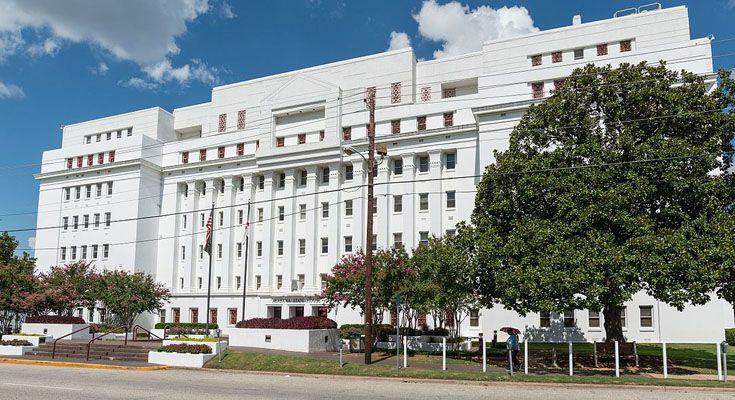The first day of the 2022 Alabama Regular Legislative Session began on Tuesday, Jan. 11, with legislators being informed that revenues are coming in faster than projected and that the 2023 Education Trust Fund (ETF) and State General Fund budgets (SGF) will both be the largest (by far) in state history.
Alabama has a budgeting system where over 90% of revenues are earmarked and the legislature appropriates money into two funds: the ETF, which deals primarily with education, and the SGF, which deals with most non-education state functions - outside of roads, which are primarily paid for with fuel tax dollars.
In the 2021 Alabama Regular Legislative Session, the Legislature passed a $7,672,576,575 fiscal year 2022 ETF budget, including a $455,154,088 increase over the 2021 budget. The 2022 Alabama fiscal year began on Oct. 1.
The 2022 education budget is the largest in the history of the state, but the 2023 budget is expected to be even bigger.
On Tuesday, Gov. Kay Ivey (R) requested a record $8,299,759,929 ETF budget. That request is $627,183,354 more than in the 2022 ETF budget - an 8.17% increase.
In Ivey’s budget request, elementary K-12 education would receive $5,662,138,177 – a $406,220,888 increase over 2022’s number – a 7.73% increase. Higher education would receive $2,132,295,081 in FY2023. That is $175,199,287 more than in FY 2022 - a 8.95% increase. Other state agencies funded in the ETF would receive $505,326,671 in Ivey’s request. That is $45,763,179 more than in FY 2022 a 9.96% increase.
On a percentage basis of the ETF, K-12 would get 68.22% of the FY2023 ETF dollars, down from 68.5% in FY2022. Higher education would get 25.69% of ETF dollars, versus 25.51% in 2022. Other state agencies would get 6.09% in FY2023 – up from 5.99% in 2022.
Part of the increase is a proposed 4% across-the-board pay increase for education workers. The governor is also requesting that education retirees receive a bonus check.
There is a similar situation in the general fund budget.
The 2022 fiscal year SGF was $2,519,509,178. Ivey is requesting the legislature pass a $2,685,040,061 SGF budget. That is a $165,530,833 increase from 2022 - 6.57%.
In a few key government functions in Ivey’s proposed SGF:
The Judicial branch would receive $185,214,276 42, which is an increase of just $1,205,457 (0.66%).
The Bureau of Pardons and Paroles would receive $80,397,917, an increase of $ 20,809,217 (34.92%).
The Alabama Law Enforcement Agency would receive $75,264,859, an increase of $2,884,175 (3.98%).
The Governor’s office would receive $4,653,090, which is a $500,000 increase (12.04%).
The Department of Human Resources would receive $103,667,369, an increase of $17,100,000 (19.75%).
The Department of Public health would receive $73,400,734, a cut of $29,340,735 (-28.56%).
Corrections would receive $594,647,303, an increase of $19,625,733 (3.41%).
The Commerce Department would receive $7,149,775, a cut of $589,134 (-7.61%).
The Attorney General is level funded at $12,563,223, a 0% increase.
The State Auditor (which received a series of debilitating cuts during the Bentley Administration) is level-funded at $863,258, a 0% increase.
Alabama Medicaid would receive $789,000,000, an increase of $19,751,862 (2.57%).
The District Attorneys would receive $37,882,397, an increase of $2,000,000 (5.57%).
The state would spend $32,588,552 on debt service plus a new line item of $30,000,000 on debt service for the new Corrections Institution Finance Authority. The two combined would be an increase of $20,782,305 over what the state spent on debt service in 2022 (49.7%).
Ivey is requesting a 4% pay increase for state workers.
To further complicate the budgets, due to the unexpected influx of revenues the Governor is requesting massive supplemental appropriations to the already record FY2022 ETF and SGF. The Legislature also has over $1.5 billion in American Rescue Act dollars to appropriate, as well as infrastructure dollars from President Joe Biden’s Build Back Better infrastructure bill that will be coming next year and two years after that.
Kirk Fulford is the Deputy Director of the Alabama Legislative Services Agency (LSA) where he heads the Fiscal Division.
Fulford warned legislators that “there is a fiscal cliff coming,” and that when federal COVID relief and stimulus dollars awarded to businesses, individuals, and governments run out, the record tax collections that the state is experiencing now will diminish as well.
Fulford outlined all the many ways where 2021 revenues far exceeded the legislature’s projections in almost every area but warned that the current economy is not sustainable.
“There is a fiscal cliff coming in both the education and general trust fund budgets,” Fulford warned a joint meeting of members of the budget committees.
Fulford warned that while unemployment is down to pre-pandemic lows, the labor participation rate is well below its pre-pandemic peak. In what is being called “The Great Resignation,” millions of Americans have quit their jobs and left the workforce altogether and so are not showing up as unemployed.
“The job market we are in right now is basically an employee’s job market,” Fulford said. “Employees can pick and choose where they want to go with.
“The 6.8% inflation rate is the highest since June 1982. The Federal Reserve is going to step up its efforts to raise interest rates and we still have supply chain issues. The general fund grew by $252 million, 11.4% growth is extremely abnormal, around 5% is normal.
“Nearly every state had a double-digit increase in personal income growth. Almost all of that is transfer receipts (from the federal government) both to individuals and PPP loans to business. Gross sales tax is up $14.75%. Those numbers would look entirely different without all of the federal assistance. I looked back 50 years and I can’t find a 15% increase in sales tax.”
State Finance Director Bill Poole told legislators, “We know these are artificially inflated revenue numbers. We need to be very careful that we don’t make permanent decisions based on a temporary situation.”
Tuesday will be day three of the 2022 Alabama Regular Legislative Session.
To connect with the author of this story, or to comment, email brandon.moseley@1819News.com.









